-
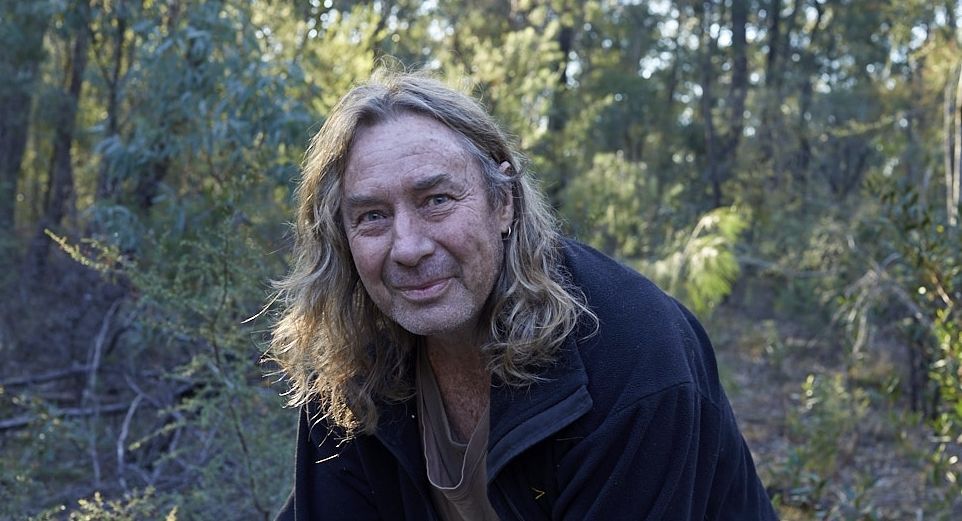
Catch up: Two ways of walking together, Science and Culture – A community based Aboriginal rock art project in the Blue Mountains
As part of the latest conversation in the First Nations Speaker Series Wayne Brennan spoke about a community based Aboriginal rock art project in the Blue Mountains.
Wayne is an archaeologist of Gamilaraay descent, who specialises in Aboriginal rock art. He has lived and conducted research in the Blue Mountains for over 35 years. Wayne has worked as an education officer, researcher and remote fire fighter for the National Parks and Wildlife Service and is currently an Aboriginal heritage consultant and visiting research fellow with the Australian Museum, Sydney.
Catch up on this conversation here: https://youtu.be/ixGyJyXAso8
The First Nations Speaker Series is presented in collaboration with Sydney Living Museums, GML Heritage and the Research Centre for Deep History.
-
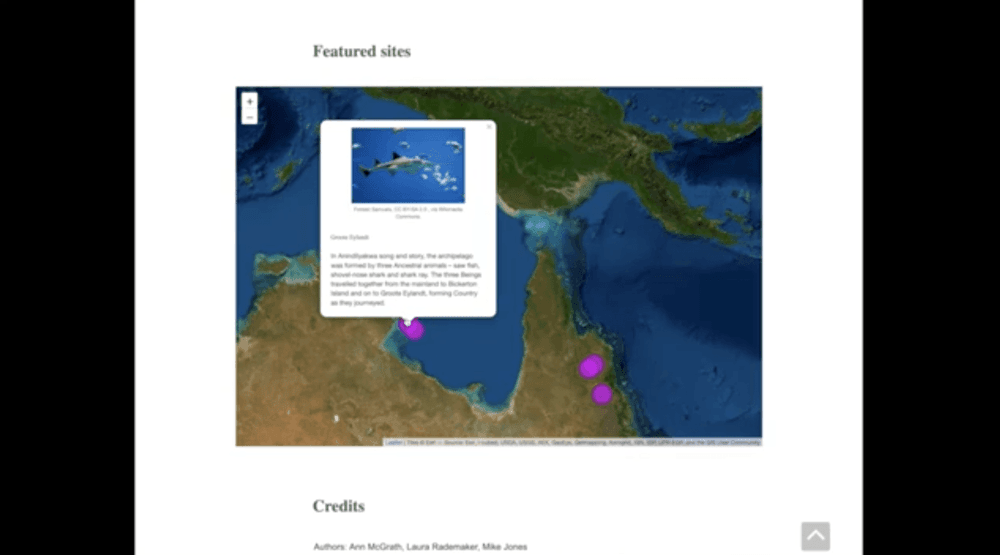
Marking Country: An update on the Centre’s Deep History Mapping project
As the Centre’s mapping project Marking Country moves into its final phase, the Centre’s Deputy Director Mike Jones shares an update.
When I first joined the Laureate program in 2019, our plan as a team was to create a digital atlas that used a national map to display lots of data and many layers of information. But though the shape of the continent continues to provide a frame of reference, it soon became clear we shouldn’t be trying to unify local stories from different communities or attempting to fill the map with as many sites as possible. Guided by our Indigenous Advisory Committee and our collaborating researchers, we realised that what we needed to do instead was create a space for deeper engagement with local landscapes, histories, and perspectives.
There will still be plenty of maps included in Marking Country. But the focus isn’t on location markers or individual sites, it’s about the way people engage with Country, and have done for many generations—since the Creation, as many communities see it—developing and maintaining a sense of place, creating rock art, shaping the landscape, moving from place to place, telling stories, singing songs, and learning family histories. Deep history is about these layers that in a broad sense mark Country, leaving a trace.
Whether the result is still an ‘atlas’ is an open question. Terms can be loaded with historical baggage, and we need to be careful about what we bring to this space. We need to ask the people we work with about the set of meanings that word has for them and if they are negative, we need to consider alternatives.
At this stage of the project there are a lot of moving parts, with a number of stories all at different stages. Although the project has been hampered by COVID lock-downs and border closures, we have several stories we are co-creating with Indigenous custodians around the country: Director Ann McGrath and I were privileged to visit Quinkan Country on the Cape York Peninsula in Queensland with local guide Johnny Murison; Ann and Amy Way had a recent trip to Koolmandanji Place (also known as Carnarvon Gorge) in Queensland led by Jackie Huggins and Uncle Fred (Cotto) Conway; Ben Silverstein and I are collaborating with Nyamba Buru Yawuru in and around Broome; Laura Rademaker (former Deputy Director, now collaborating scholar) is working with the Groote Eylandt community; Ann and cultural mapping expert Kim Mahood have worked with families in the Willandra Lakes district in south-western NSW; collaborating scholar Mary Anne Jebb is developing material with Woddordda and Ngarinyin people in the Kimberley; and Ann is working with Emma Batchelor on a more general story about historical maps.
Over the next month or two we will be confirming the stories that will be included for the Marking Country launch, drafting content, identifying the images and videos we will use, and getting a better sense of the themes that are emerging. It’s also vital that during this time we keep taking material back to community participants and collaborators for feedback. Once we have further developed the content, we will also spend time reviewing our work with the project’s Senior Advisor, Professor Jackie Huggins.
From this point on it is a very iterative process, and the iterations will get shorter right up until launch as we finalise content and test the site. Our developer Tabs Fakier is key to this process. The content we gather and the messages we want to convey inform her design process and the technologies used. As it’s not possible to custom build every story, these designs then become templates that help shape other stories. With the launch booked for November, and content from fieldwork still coming in, the timeframes are tight, but we are looking forward to sharing the results with communities, researchers, and the public.
The past three years have been a fantastic experience, and we have all learned a great deal about working with communities interested in sharing deep time stories and rich cultural knowledge, as well as the challenges of developing significant digital public history resources. When Marking Country goes live in November, we hope it will become a valuable resource for anyone who wants to engage with some of the many long and diverse histories found right across these lands.
To understand more about the technical and web development aspect of this project catch up on this blog from Tabs Fakier: https://resdeephistprd.wpenginepowered.com/live-streaming-building-the-re-atlas
-
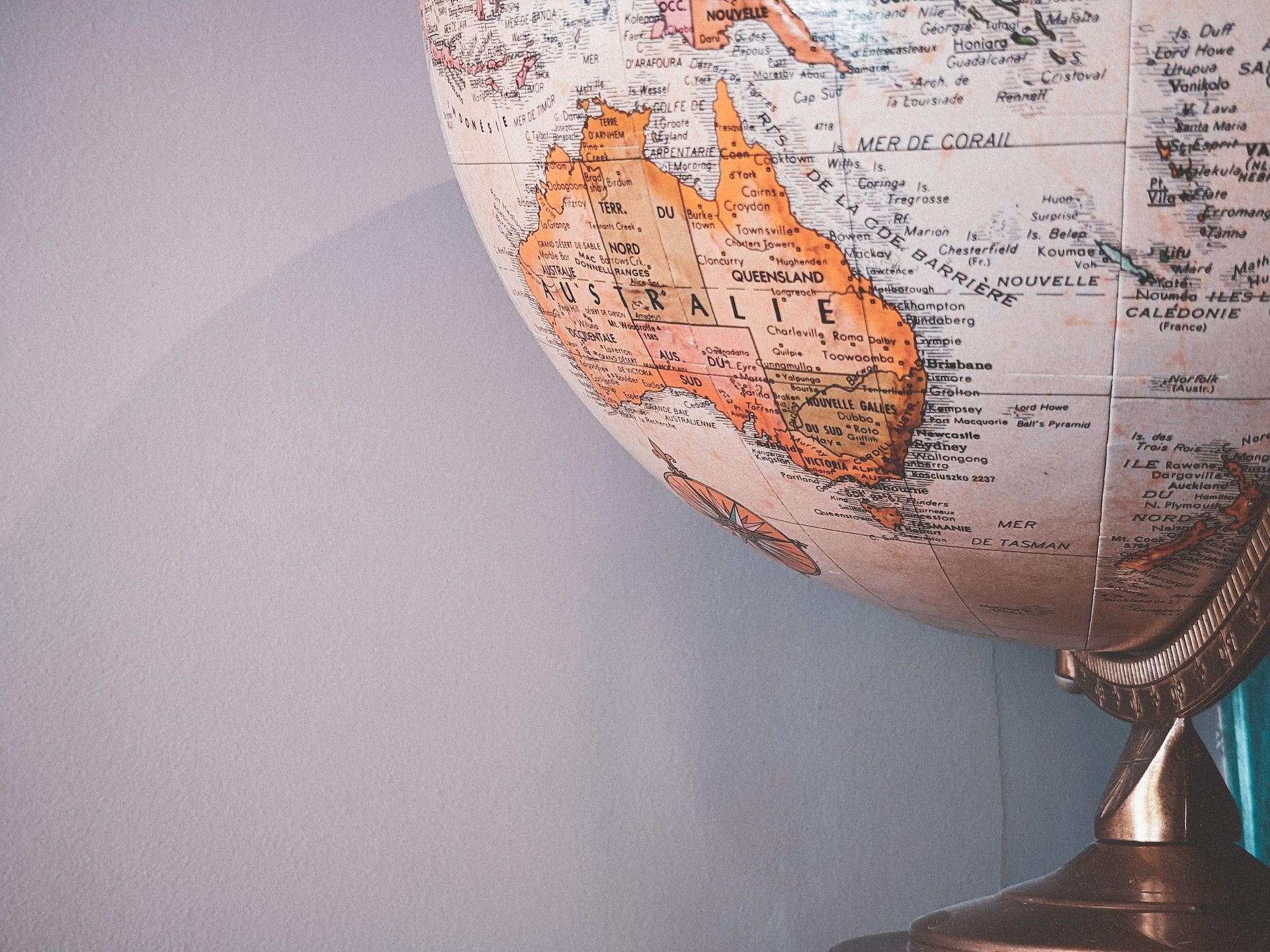
Catch up on Deep Conversations: Space, Data, Place
Digital mapping is becoming an increasingly common tool for historical research in Australia, providing historians with new ways of visualising and representing the past. How can historians use the tools, methods, and outputs of digital humanities to gain new insights into the Australian past? How can these tools be used to tell accessible stories of space, place, and Country? What kinds of sources do historians require to produce these histories? What skills are required and how can historians learn them? And are there political or ethical considerations when mapping and representing the Australian past in this way?
In this seminar, Mike Jones (ANU), Fiannuala Morgan (ANU), Emma Thomas (UNSW), and Bill Pascoe (Melbourne) reflect on the use of digital mapping in their work and discuss the promises and pitfalls of these methods. This is a rare opportunity to see how Australian historians are using the tools of digital humanities to investigate deep time, bushfires, ‘blackbirding’ in the Pacific, and frontier massacres, and to discuss the questions, research, technology, and skills that underlie these kinds of outputs.
You can catch up on this conversation here: https://youtu.be/hUxe_zkDRCw
About the Speakers
Mike Jones is an archivist, historian, and collections consultant. He has a background in art history, and over a decade of experience working with the GLAM sector (galleries, libraries, archives, and museums) on digital, archival, and public history projects. He is a Postdoctoral Research Fellow on the ‘Rediscovering the Deep Human Past’ project in the Research Centre for Deep History at the Australian National University. The project aims to develop a deeper understanding of Australia’s pre-1788 history, transforming the scale and scope of history through the analysis of Australia’s epic Indigenous narratives alongside relevant new scientific evidence to create new approaches to the history of Greater Australia/Sahul. He completed his PhD in History at the University of Melbourne.
Fiannuala Morgan is a PhD student at The Australian National University and a Librarian at The National Library of Australia. Her current research involves the application of digital mapping software in the analysis of 19th century Australian fiction. Her recent publications include the Cambridge Element Aboriginal Writers and Popular Fiction: The Literature of Anita Heiss (2021) and the edited collection Black Thursday and Other Lost Australian Bushfire Stories (2021).
Emma Thomas is Laureate Postdoctoral Fellow at the Laureate Centre for History & Population at the University of New South Wales, Sydney. She is a historian of gender, labour, and colonialism who focuses on transnational histories of Oceania and Europe. She earned her PhD from the University of Michigan, Ann Arbor, in 2019, and was the 2020 recipient of the Fritz Stern Dissertation Prize, awarded by the Friends of the German Historical Institute, Washington DC. Her current book manuscript, Contested Labors: New Guinean Women and the German Colonial Indenture, analyses intersections of gender and sexuality, labour regimes, demographic crisis, and colonial violence in Papua New Guinea under German rule. She is also currently collaborating with Associate Professor Emma Christopher (UNSW) on the development of an interactive, web-based database that will detail and map transportations of Pacific Islander labourers across colonial Oceania. Dr Thomas will be discussing her project ‘Mapping Histories of “Blackbirding” and the “Pacific Labour Trade”’.
Bill Pascoe is a Digital Humanities specialist and is currently the System Architect on Time Layered Cultural Map, a national digital humanities mapping infrastructure project. He has worked with the Centre For 21st Century Humanities and the Centre for Literary and Linguistic Computing at the University of Newcastle, Australia (Awabakal). He has been a leader and contributor in innovative and high impact Digital Humanities and eResearch projects, including the Colonial Frontier Massacres project, the EMWRN archive, ELDTA endangered languages, IA stylometry software, Virtual Biobank 3D medical image processing and eWater. He has software development experience across finance, water engineering, science, health and humanities and an education in English, creative writing, semiotics and philosophy.
Deep Conversations: History, Environment, Science is a partnership of the Research Centre for Deep History and Centre for Environmental History. The seminar series aims to bring together scholars from diverse disciplines to discuss questions of history, science and the environment, and how they shed light on the global challenges we face today.
Image by Sigmund via Unsplash
-
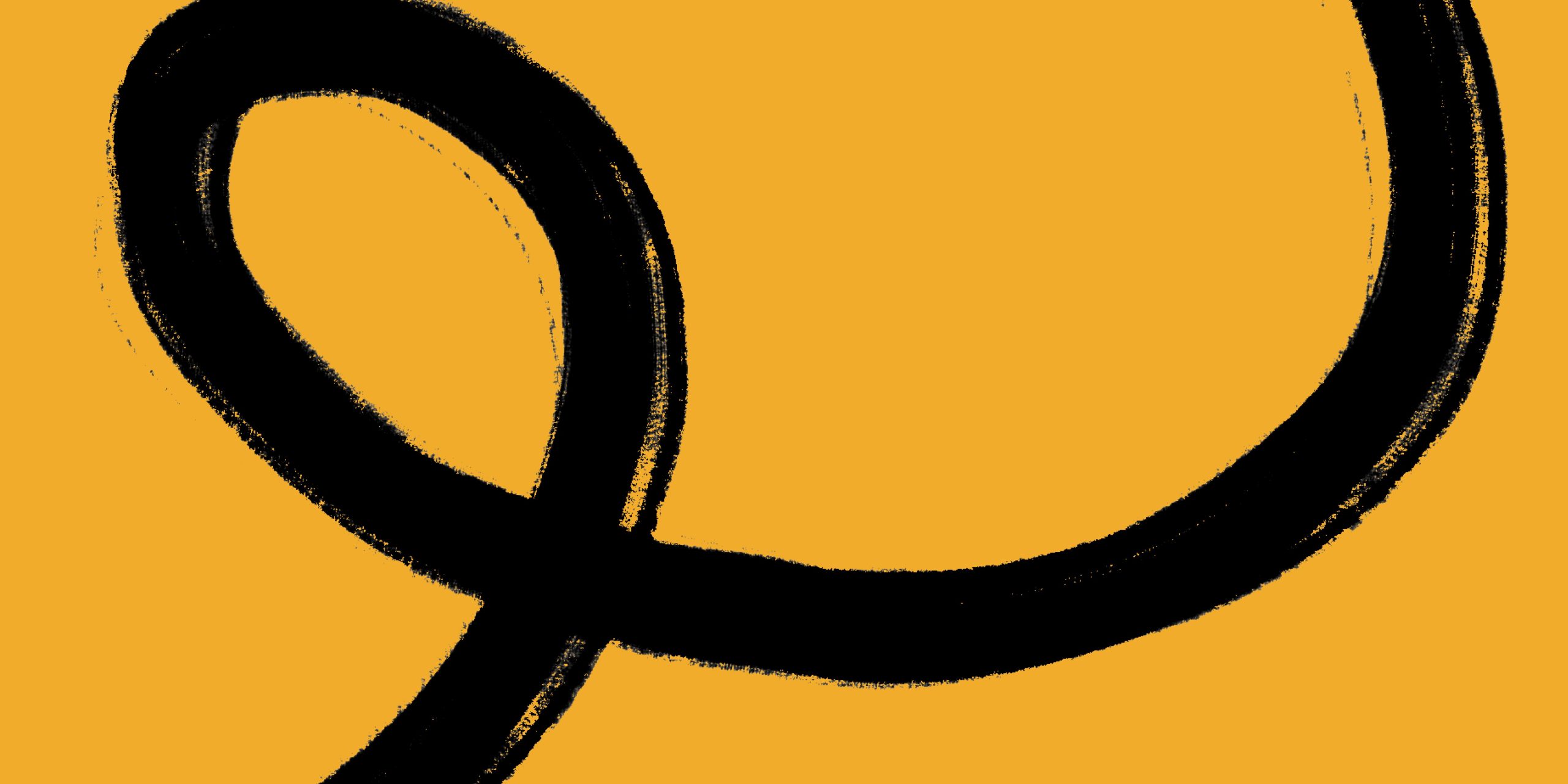
Free Event: Two ways of walking together, Science and Culture – A community based Aboriginal rock art project in the Blue Mountains
The First Nations Speaker Series is presented in collaboration with Sydney Living Museums, GML Heritage and the Research Centre for Deep History. Join us for a conversation with Wayne Brennan about a community based Aboriginal rock art project.
What: Two ways of walking together, Science and Culture – A community based Aboriginal rock art project in the Blue Mountains
When: Wednesday 3 August 2022, 6pm–7pm
Where: Free Online and in person at the Museum of Sydney. The session will be recorded and made available after the event.
Register: Bookings are required, register for your free ticket here.
About Wayne Brennan
Wayne is an archaeologist of Gamilaraay descent, who specializes in Aboriginal rock art and has lived and conducted research in the Blue Mountains for over 35 years. He has worked as an education officer, researcher and remote fire fighter for the National Parks and Wildlife Service since 1987. He currently works as an Aboriginal heritage consultant and is a visiting research fellow with the Australian Museum, Sydney. Read more.
-

Catch up: Advancing Aboriginal Led Approaches to Enterprise and Economic Development in NSW
Professor Heidi Norman recently gave a talk on Aboriginal led approaches to enterprise and economic development as part of the First Nation’s Speaker Series. This series of conversations is presented in collaboration with GML Heritage and the Research Centre for Deep History.
This talk is now available to watch on demand via the link below. About her talk and her work, Heidi Norman has said:
“In this work I offer some initial insights, drawing on field work conducted over the last few years, about Aboriginal led approaches to enterprise and economic development. Focusing on NSW and the work of Local Aboriginal Land Councils (LALCs), I map these approaches and identify some key themes along with the limits and possibilities of Aboriginal-led collective enterprise and economic development. I examine this point in relation to the history of Aboriginal contact and engagement with the settler economy, the public policy orientation towards economic development and more recently, Indigenous businesses. Bringing together the policy and the practice of communal and land-based enterprise, I offer suggestions for strategies to advance Aboriginal aspirations for economic development linked to the land estate.”
Watch Heidi’s talk on YouTube.
About Heidi Norman
Professor Heidi Norman is a leading Australian researcher in the field of Aboriginal political history. From 2018 she has commenced a large ARC funded study of the social, economic and cultural benefits of Aboriginal land repossession in New South Wales. At the heart of her research, is her support for Aboriginal peoples’ rightful place in the nation, especially within political institutions, in society and the economy as landholders. She is a descendant of the Gomeroi people from north western NSW.
Heidi Norman is a collaborating scholar of the Research Centre for Deep History.
-

Advancing Aboriginal Led Approaches to Enterprise and Economic Development in NSW
The First Nations Speaker Series is presented in collaboration with GML Heritage and the Research Centre for Deep History. Join us for a conversation with Professor Heidi Norman about Aboriginal led approaches to enterprise and economic development.
What: Advancing Aboriginal Led Approaches to Enterprise and Economic Development in NSW with Professor Heidi Norman
When: Wednesday 6 July 2022, 6pm–7pm
Where: Free Online and in person at the Museum of Sydney. The session will be recorded and made available after the event.
Register: Bookings are required, register for your free ticket here.
About her talk and work, Heidi Norman has said:
“In this work I offer some initial insights, drawing on field work conducted over the last few years, about Aboriginal led approaches to enterprise and economic development. Focusing on NSW and the work of Local Aboriginal Land Councils (LALCs), I map these approaches and identify some key themes along with the limits and possibilities of Aboriginal-led collective enterprise and economic development. I examine this point in relation to the history of Aboriginal contact and engagement with the settler economy, the public policy orientation towards economic development and more recently, Indigenous businesses. Bringing together the policy and the practice of communal and land-based enterprise, I offer suggestions for strategies to advance Aboriginal aspirations for economic development linked to the land estate.”

Heidi Norman. About Heidi Norman
Professor Heidi Norman is a leading Australian researcher in the field of Aboriginal political history. From 2018 she has commenced a large ARC funded study of the social, economic and cultural benefits of Aboriginal land repossession in New South Wales. At the heart of her research, is her support for Aboriginal peoples’ rightful place in the nation, especially within political institutions, in society and the economy as landholders. She is a descendant of the Gomeroi people from north western NSW. -

Catch up: First Nations Speaker Series: In conversation with Dennis Golding
The First Nations Speaker Series is presented in collaboration with GML Heritage and the Research Centre for Deep History. In this session artist Dennis Golding and Sydney Living Museums’ Head of First Nations Cultural Engagement Peter White discussed Golding’s series of work Cast in cast out.
Works from the series acquired by Sydney Living Museums were recently exhibited at the Museum of Sydney in the exhibition Collected. Cast in cast out explores dispossession and colonial occupation and is inspired by Golding’s childhood on The Block, Redfern.
Catch up here: https://www.youtube.com/watch?v=HWcgySh5J14&t=3509s
-
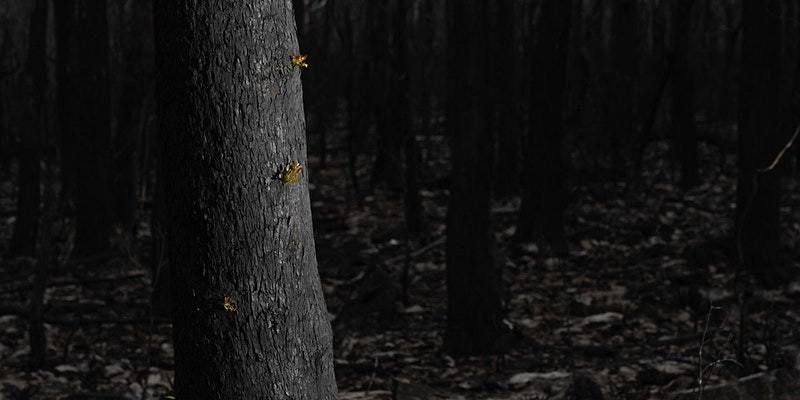
Catch up on Deep Conversations: Restoration, Recovery and Repair, Part II: Rehabilitation
Deep Conversations: History, Environment, Science is a partnership of the Research Centre for Deep History and Centre for Environmental History. The seminar series aims to bring together scholars from diverse disciplines to discuss questions of history, science and the environment, and how they shed light on the global challenges we face today.
Amid a climate of crisis and ‘unprecedented times’, moments of destruction and devastation are intertwined with those of respite and renewal. By exploring these moments—their mechanisms and tensions—scholars can produce new insights into our past, present and potential futures.
In Part II of this deep conversation, Dr Annick Thomassin, Dr Nicholas Hoare, and Dr Scott McKinnon reflected on the practice, meaning and significance of rehabilitation, and its significance for communities, histories, institutions, and ecologies.
Catch up here: https://youtu.be/ho5YIxtvDDA
-

Deep Conversations: Restoration, Recovery and Repair, Part II: Rehabilitation
Amid a climate of crisis and ‘unprecedented times’, moments of destruction and devastation are intertwined with those of respite and renewal. By exploring these moments—their mechanisms and tensions—scholars can produce new insights into our past, present and potential futures.
In Part II of this deep conversation, join Dr Annick Thomassin, Dr Nicholas Hoare, and Dr Scott McKinnon as they reflect on the practice, meaning and significance of rehabilitation, and its significance for communities, histories, institutions, and ecologies.
Date: Monday 23 May 2022
-
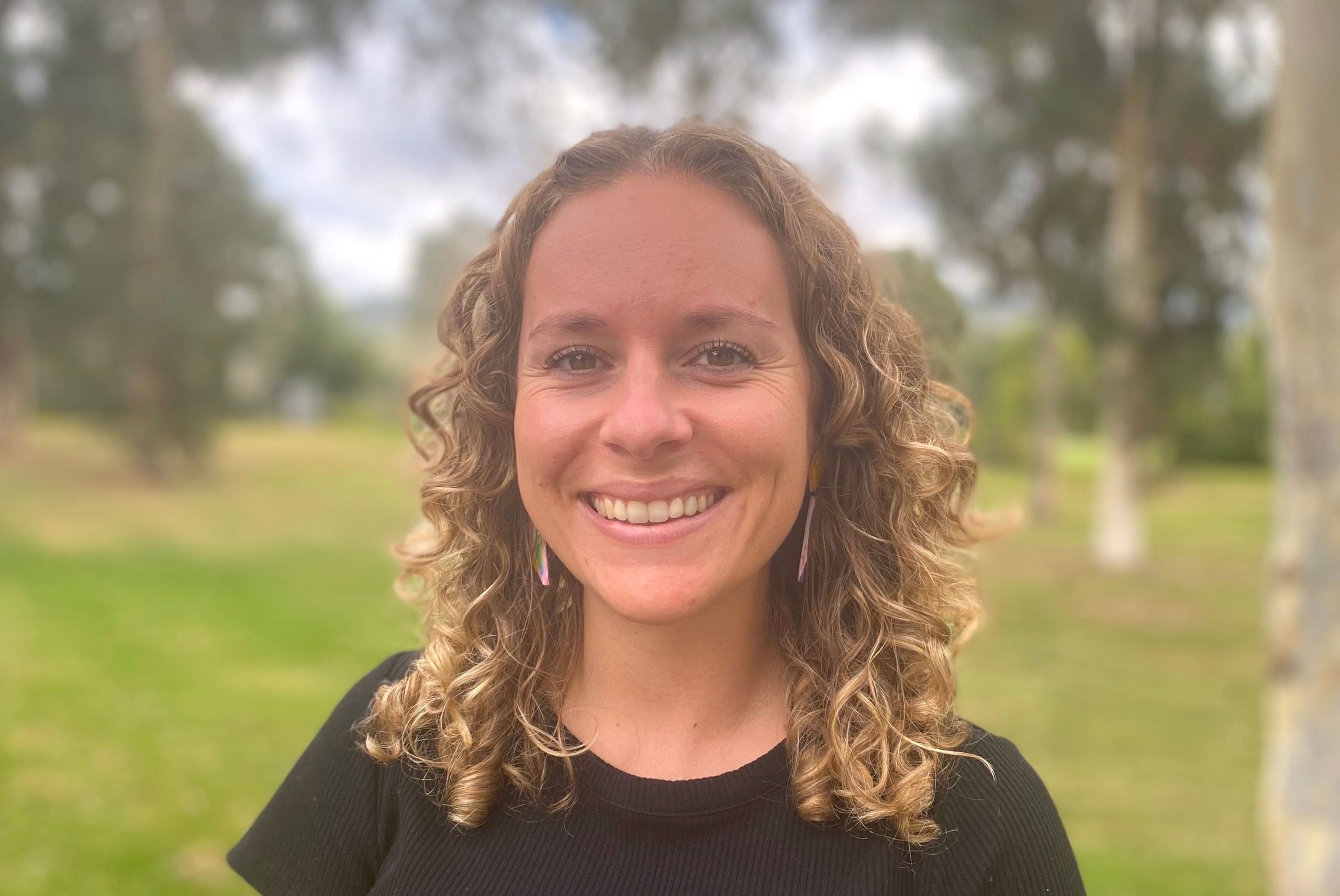
An introduction to new team member Amy Way
The Research Centre for Deep History was pleased to welcome Postdoctoral Research Associate Dr. Amy Way in February this year. Amy specialises in the history of human antiquity and deep time in Australia, and its conceptualisation within geology, archaeology, anthropology and public discourse. She received the Vice Chancellor’s Commendation for Academic Excellence for her PhD dissertation (2020), and in 2021, was awarded the Australian Historical Association’s Ann Curthoys Prize for her study of Aboriginal antiquity in Australian anthropology.
RCDH: What drew you to the Centre for Deep History?
Amy: I have always been fascinated by Australian history, and especially the narratives settler-Australians choose to tell themselves about the past. The Centre for Deep History shares my concern with deepening historical narratives, questioning traditional periodisation, transforming the scale of history, and bridging the gap between the deep past and the present. But what really drew me to the Centre is not just how the team use their research to reshape how we think about history, but how their work platforms, and is led by, Indigenous voices. Deep history in Australia goes beyond settler epistemology to be first and foremost an embodied, living history of Aboriginal and Torres Strait Islander’s enduring connection to Country.
RCDH: What will you be working on?
A: I’ll be working on turning my doctoral research into a book, while also helping the team finish the Centre’s digital deep history atlas. I’ll be conducting fieldwork on Country, collecting oral histories, and searching through collections for artefacts that help communicate deep history beyond the colonial archive. I am also running training workshops, and co-convening the Deep Conversations: History, Science, Environment seminar series with colleagues in the Centre for Environmental History.
RCDH: What were you doing before you came to Re?
A: Before I moved to Canberra, I lived in Sydney and taught Australian history at Macquarie University and the University of Notre Dame (Ultimo). I also worked as an Education Officer for Macquarie University’s fantastic history incursions program, Studying the Past, which delivered ancient and modern history workshops to high school students. Outside of teaching, I was (and still am) working on a biography of paleontologist and museum director Robert Etheridge Junior (1846-1920), in partnership with the Australian Museum and Etheridge descendants.
Amy’s work has been published in History Australia and Studies in the History and Philosophy of Science. She is a Visiting Fellow with the New Earth Histories Research Centre at the University of New South Wales, Sydney.
Follow Amy on twitter: @amywayness

